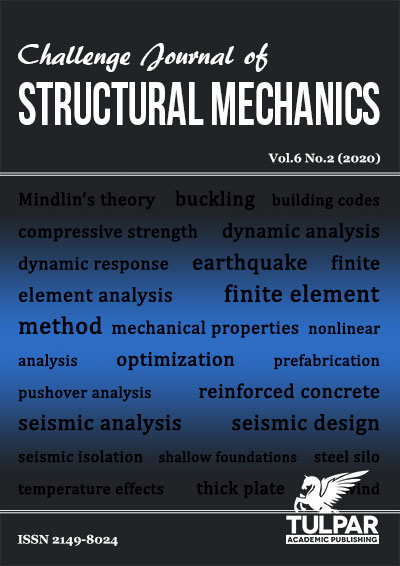
Challenge Journal of Structural Mechanics
Yazarlar: Osman Fatih Bayrak, Seda Yedek, Muhammet Musab Erdem, Murat Bikce
Konular:-
DOI:10.20528/cjsmec.2018.01.005
Anahtar Kelimeler:Steel structures,Infill walls,Non-structural cracks in elements,Modeling of infill walls
Özet: Infill walls consisting of materials such as hollow concrete, hollow clay and autoclaved aerated concrete bricks are not only preferred in reinforced concrete buildings but also in steel frame structures. It is a well-known fact that infill walls limit the displacement of frames under horizontal loads. However, they may also bring about certain problems due to being placed randomly in horizontal and discontinuously in vertical directions for some architectural reasons. Moreover, cracks in frame-wall joints are observed in steel frame structures in which ductile behaving steel and brittle behaving infill walls are used together. In this study, the effect of infill walls on steel frames has been investigated. In the steel frame structure chosen for the study, four different situations consisting of different combinations of infill walls have been modeled by using ETABS Software. Later, the pushover analyses have been performed for all the models and their results have been compared. As a result of the analyses done by using the equivalent diagonal strut model, it has been found out that infill walls limit the displacement of steel frames and increase the performance of a structure. However, it has been also determined that in the steel frame structure in which the infill walls have been placed discontinuously in vertical and asymmetrically in horizontal, infill walls may lead to torsional and soft story irregularities. As a result, it is possible to observe cracks in the joints of infill walls and steel frame, the deformation properties of which differ, unless necessary precautions are taken.